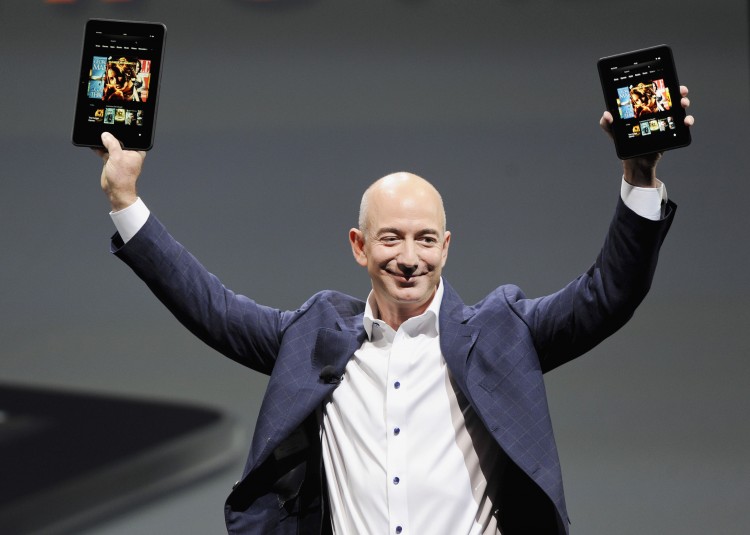Web retail and warehouse giant Amazon revealed Thursday that it had notched $17.09 billion in third-quarter revenue while losing $41 million. As the New York Times’ David Streitfeld noted, that “followed a familiar script” for the company: “it sold vast quantities of things, lost money while doing so, and investors were delighted.” What gives?
“I think we have seen repeatedly that the stock market can be highly irrational,” economist Dean Baker told Salon in a Friday email. “The tech bubble was not very long ago. All sorts of nonsense companies had market values of hundreds of millions or even billions. When social media was really hot Groupon was worth 12 billion – that’s for selling coupons on the web – novel idea.”
Forrester Research analyst Sucharita Mulpuru told the Times that Amazon was “the teacher’s pet of Wall Street,” because no other company in the world “has the consistently abominable rate of profitability they do and yet has the stratospheric valuation they do.”
Amazon did not immediately respond to a request for comment. In a Thursday statement touting the $17 billion and noting (further down) an expected net negative profit, Amazon founder and CEO Jeff Bezos ticked off a series of highlights from the company’s past “busy few months.” Those ranged from “brought 8 million square feet of fulfillment center capacity online” to “signed up millions of new Prime members,” to “announced Kindle MatchBook, Login & Pay, and nine new original TV pilots…”
But Baker, the co-director of the progressive Center for Economic and Policy Research, declared himself a “serious skeptic” on the company’s potential to reap big future profits. While noting he couldn’t rule out the possibility, Baker cited the coming “end of their sales tax subsidy,” as increasing numbers of states will charge the same tax on Amazon purchases as other retail. “In a state like California,” said Baker, “that’s 8 percent off the top.”
Baker told Salon that Amazon’s economic impact has been “mixed”: on the one hand, “It has accelerated the move to the web” and “really broke through to create a user-friendly web reader.” On the other, “it has put many small retailers out of business – in part because of its sales tax subsidy. It has also cost state and local governments tens of billions in tax revenue.”
Amazon has also come under increased scrutiny in recent years for the labor conditions in its quickly expanding network of “fulfillment centers.” Amazon warehouse workers told the The Morning Call in 2011 that they “were forced to endure brutal heat” and “were pushed to work at a pace many could not sustain” and that firings of workers who didn’t keep up “encouraged some workers to conceal pain and push through injury…” Former workers told The Seattle Times in 2012 that “there was pressure to manage injuries so they would not have to be reported to OSHA,” and some “said that in its relentless push for efficiency, Amazon was quick to shed workers who, regardless of tenure, could no longer measure up.” Amazon touts its warehouse jobs as better-paying than traditional retail and safer than department store work.
“Amazon is growing rapidly, but they’re not creating good jobs,” labor historian Nelson Lichtenstein told Salon in July. “They’re creating insecure, temporary, attenuated jobs, which are reproducing all the pathologies of a two-tier labor market and a world of inequality – that’s what they’re creating.” Lichtenstein, the author of “Retail Revolution: How Wal-Mart Created a Brave New World of Business,” added that Amazon was “a fabulously successful company with a new technology that could create a solid working class, but they chose to instead create something that looks like it’s out of the 19th century.”
In order for that success to translate into profit, would Amazon have to drive more competitors out of business? “I’m sure that Amazon is betting on getting some serious market power,” said Baker, “which is a necessary basis for its profitability.”


